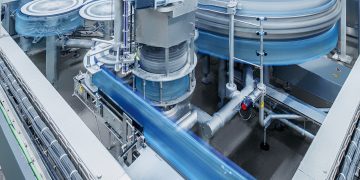The global logistics robots market reached a value of US$ 11.7 Billion in 2021. Looking forward, the publisher expects the market to reach US$ 49.4 Billion by 2027, exhibiting a CAGR of 24.16% during 2022-2027. Keeping in mind the uncertainties of COVID-19, we are continuously tracking and evaluating the direct as well as the indirect influence of the pandemic on different end use industries. These insights are included in the report as a major market contributor.
Logistics robots are self-directed floating devices utilized in warehouses and storage facilities to organize and transport products, a process which is known as intralogistics. These robots automate the process of storing and moving goods as they pass through the supply chain, improve the efficiency of logistics operations and reduce labor, machinery and maintenance costs.
They also enhance human-machine collaboration and assist companies in complying with various workers’ safety regulations. Logistics robots lead to significant productivity gains and profitability as compared to conventional counterparts, such as forklifts, due to which their demand is escalating around the world.
An increase in the number of logistics and warehousing companies that are incorporating robots to improve speed and efficiency and remain competitive in the market are propelling the demand for logistics robots worldwide.
Moreover, the adoption of advanced technologies, such as robotic warehousing and logistics technologies, is growing on account of the sudden outbreak of the coronavirus disease (COVID-19) and the consequent lockdowns imposed by governments of various countries to prevent the transmission of the pandemic. This can also be accredited to the temporary closure of manufacturing units, disruptions in the supply chain and labor shortage.
Apart from this, due to the increasing internet penetration and a rising preference for online shopping, the e-commerce sector is burgeoning, especially in emerging economies. Organizations in this sector are emphasizing on improving the packaging quality, concentrating on timely delivery and deploying logistics robots, which is anticipated to fuel the market growth in the upcoming years.























